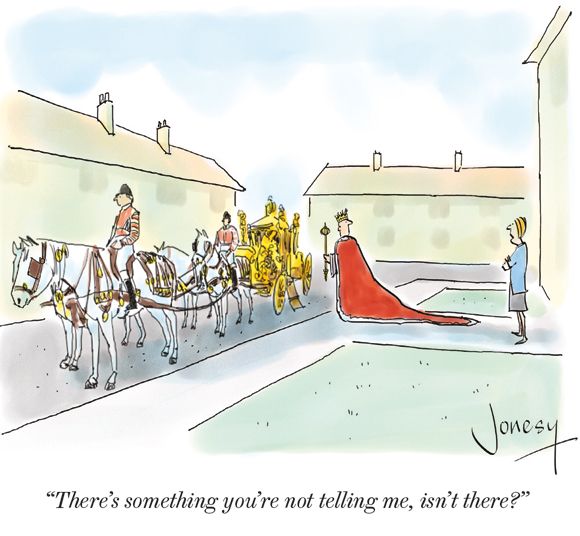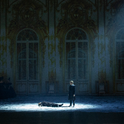Richard Wagner’s four-opera cycle, Der Ring des Nibelungen, which he began in 1848 and on which he worked over the next two decades, is a comprehensive re-working of Old Norse myths, as recounted in the Icelandic Eddas. In Wagner’s story, the Viking gods are situated in a German landscape, along with Siegfried, hero of the German medieval epic Nibelungenlied. The Ring Cycle is about the gods, but the gods as conceived by a modern artist, whose concern is to create a myth that will comprehend all the principles—moral, political and spiritual—by which the modern world is governed. It is a story of the gods for people who have no gods to believe in.
That is why the Ring Cycle is of ever-increasing importance to music-lovers in our times. Its theme is the death of the gods, and what the gods have bequeathed to us, namely, the knowledge of, and longing for, the sacred. Until we recognise sacred moments, Wagner implies in this monumental work, we cannot live fully as free beings. These moments are the foundation of all our attempts to endow human life with significance. Despite the controversies that have surrounded this great work—its vast length, its dubious later associations with Nazi thought—it constantly grows on the collective imagination. It is not the answer to life in a post-religious world, but it asks the real questions, and shows us one fruitful way of confronting them. We should not be surprised that the forthcoming Opera North production at the Southbank in London was sold out within the space of a day.
When Wagner began work on the cycle, he was, like Karl Marx, a disciple of the philosopher Ludwig Feuerbach. Like Feuerbach, he believed in the possibility of a political revolution that would free mankind from domination and establish an order of freedom. He even took part in the 1849 revolution in Dresden, where he was court Kapellmeister (the name given to the person in charge of music-making), after which he was forced to flee into exile in Switzerland and France. Some traces of Wagner’s early radical political vision remain in the finished work, inspiring Bernard Shaw, in The Perfect Wagnerite (1898), to describe the cycle in Marxist terms, with Siegfried as a revolutionary hero, fighting the monsters of industrial capitalism. Having found himself unable, on this reading, to make sense of Götterdämmerung, Shaw dismissed the last of the four music dramas as mere “grand opera,” arguing that Wagner missed the opportunity, in the character of Siegfried, to deliver the agenda for the new socialist man.
Such an interpretation holds little plausibility for us today. The “radical” Wagner of Shaw’s imagination sits uneasily with the traditionalism found in his 1867 comedy Die Meistersinger von Nürnberg or the evocation of a religious community in his final work Parsifal (1878). Indeed, during the course of writing the cycle, Wagner came to believe that there could be no political salvation from the ills of civilisation. Like his sometime friend the philosopher Friedrich Nietzsche, he saw resentment as the default position of human communities, and believed that each of us must achieve redemption for himself, gaining freedom and self-knowledge through our capacity for love. To take this path is difficult. Love condemns us to suffering on another’s behalf; this capacity for sympathetic suffering is the highest human virtue, and the only known justification for our existence. Wagner’s Ring Cycle, in its finished version, is an attempt to convey why we suffer. Seldom has an artistic intention of such magnitude been so convincingly pursued.
The cycle begins in the depths of the Rhine river and also in the depths of the human psyche. It is clear that the meaning of what we witness on the stage is contained also in the music. The sustained meditation on the tonal triad, representing the swirling waters in the depths, is also an invocation of the natural order—the order from which we humans have, both to our loss and our gain, departed. In the Ring tonal harmony is the sound of Eden: pure, unsullied, guiltless. As the cycle develops, dissonance, chromaticism and melodies full of tragic tension replace the pure triads and pentatonic tunes of this supremely beautiful opening. But the pure harmonies and melodies sound always in the background, constantly reminding us of the home that we have lost, and which could never have satisfied us in any case.
The dwarf Alberich emerges from Nibelheim into the clear waters of the Rhine, and is stunned by the beauty of the three Rhine-daughters swimming there. He tries to capture them, and they tease him, thoughtlessly revealing their secret: the gold of the Rhine which glows in the depths. It is their task to guard this prize, for it will, if made into a ring, confer measureless power on the one who forges it. But he who forges the ring must first foreswear love. Alberich, driven mad by their taunts and by the helpless recognition of his ugliness, curses love, seizes the gold and escapes into the mines of Nibelheim, in order to forge the ring that will be the source of his power.
What is it that Alberich has foresworn? And what has he gained in return? The rest of the cycle can be understood as an elaborate answer to those questions, an answer that explores what power and love might mean in the aftermath of religion. It is clear that the Rhine-daughters can offer erotic games and sensual pleasure—but is that the same as love? They think so, but no one else in the Ring Cycle agrees with them. Alberich is later able to purchase sex, and intends to take revenge for his loveless existence on the women of the gods. The love that Alberich has renounced, therefore, is not the thing that he failed to obtain from the Rhine-daughters.
To understand what Alberich has lost we must examine the real loves explored in the cycle: the melting passion of the twins Siegmund and Sieglinde (children of the chief god Wotan), the high-risk romantic love of their son Siegfried and Brünnhilde and the intense father-daughter love of Wotan and Brünnhilde, which is twice the cause for transgression and forgiveness. One of these loves—that between the twins—is a forbidden love, since its expression involves both incest and adultery. But in Wagner this love also stands in judgment of the law that forbids it. We cannot understand the human condition, Wagner thought, if we do not see that law and love, both necessary to our happiness, are also in conflict. So is there anything that the many loves presented in the Ring have in common?
Real love, the drama insists, involves freedom, personality and self-sacrifice; it is momentary in its beauty and often tragic in its end. While Alberich sacrifices love for power, redemption comes only when power is sacrificed for love. Wotan, having meddled in the affairs of humans in the vain hope of postponing his end, understands at last that he must love as humans love, and die as they do.
And what exactly is the “power” that Alberich gains through the loss of love? In the interlude that follows Alberich’s theft of the gold the circular musical motif of the Ring is magically transformed into the serene theme of Valhalla, which spills out to every side like a great cushion beneath the reclining god. The music tells us that the power obtained by Alberich through the ring and that enjoyed by the king of the gods Wotan are connected. Nevertheless Wotan’s power, conferred by a special spear that he broke from the World Ash Tree, is also sovereignty, based in an overarching rule of law. Hence it must be maintained in some other way than by fear. That is why Wotan needs to build the castle of Valhalla: it is the seat of majesty, which endows him with an authority that needs no terror to impose it.
True, Wotan is trying to wriggle out of his contract with the giants, who were promised Freia, goddess of love, in exchange for building Valhalla. It is one of the deep themes of the cycle that true love tolerates no substitutes: Freia can never be purchased or sold. Nevertheless the giants are persuaded to accept Alberich’s gold hoard, the fruit of the power conferred by the ring, in exchange for renouncing their claim to the goddess. To obtain the hoard Wotan, and his wily accomplice Loge, must descend into Nibelheim and wrest the treasure from the dwarf.
The music that accompanies the descent into Nibelheim should convey, Wagner said, “a demonic delight in destruction.” Through the heart-wrenching melody (associated elsewhere with the sufferings of love) we hear the anvils at which the enslaved Nibelungs are at work on the hoard: an unforgettable representation of the factories that filled Wagner and his contemporaries with presentiments of horror.
In the scene that follows, Alberich is shown snatching the newly forged Tarnhelm (a helmet that pemits the wearer to change shape) from his brother Mime, so as to become invisible. The motif of the Tarnhelm is a musical riddle, in which one note changes from B to C flat and back again, remaining always the same. It suggests the way in which things in the human world can change into their opposites—love to hate, blessing to curse, friend to enemy—without our noticing how or knowing why. The invisible Alberich beats Mime mercilessly, and his triumphant yodels of malice echo through the caves of Nibelheim like a great “no” to all that we hold most dear.
Nibelheim is not only a place. It is a state of mind. Its denizens —Alberich and Mime—bear witness to this in all the subsequent scenes of the drama. Their one thought, on encountering others, is to make use of them. In the characters of Alberich and Mime, Wagner summarises the spiritual degeneracy that comes when we place power, unmediated by the free dealings between individuals, at the heart of the social order. Everything in the world of Nibelheim is a means, and nothing is an end in itself. The power that accumulates there is both all-inclusive and pointless, since there is nothing that can be obtained with it save more of the same. The enslaved Nibelungs live without rights, without love and with no other goal than to maintain the chains that bind them. Even when they speak of love, as Mime does to the young Siegfried and Alberich to his son Hagen, the word in fact means hate. Alberich and Mime address the world with a kind of Orwellian Newspeak, in which words mean their opposite and truth is no part of the game. This is all brilliantly displayed in the opening scene of Götterdämmerung Act 2, which ends on the word “true” spoken into the ear of the sleeping Hagen by his father Alberich, over acid harmonies which tell us that, for beings like these, there is no truth, and “true” means “false” in any case.
Valhalla too is a state of mind. It is the apparatus of authority by which Wotan has surrounded himself. He could not have built this castle in the air by his own efforts. For the power of the gods comes from our belief in them, and this belief must be naive, unquestioning, strong with the rude unthinking strength of Wagner’s builder-giants.
Because the rule of law forbids coercion, the work of the giants must be purchased, not compelled. It is this that leads Wotan to his fateful dependency on Alberich’s hoard. The rule of law embodied in Wotan’s spear comes to depend on a huge injustice, as Alberich is tricked into captivity, his hoard stolen from him and the ring torn from his finger. At the moment when this happens, and the humiliated dwarf curses the ring, our sympathies are entirely with Alberich, who has renounced all hope of happiness for the sake of the power that is now being snatched from him, which was his sole real possession and which no one else can successfully use.
Right from the beginning, therefore, we are shown that Wotan’s legal order depends upon an act of usurpation, and that there is another order of things—an order of coercion—that underpins the splendour and freedom of the gods. We see these two orders brought constantly into confrontation with each other, both cosmically and personally. Wotan tries to recruit a free being who will return the ring to the Rhine-daughters. But having endowed his son Siegmund with freedom, he recognises that he, the god, is bound by his own law to oppose him. In what is the most harrowing scene of the cycle, he therefore contrives Siegmund’s death. Thereafter Wotan is schooled by his remarkable daughter Brünnhilde to take a purely passive role. It has become clear to him that only a free human being can rid the world of Alberich’s curse. And the free being must act for himself.
Wagner is distinguishing the consensual order, ruled by law, from the coercive order, ruled by treachery and violence. And caught between these two orders, frequently defying the one and always threatened by the other, lies the narrow sphere of personal love. This is a sphere of suffering, which has no power to endure or to sustain itself, but which nevertheless contains the sole justification for the rule of law and the act of usurpation by which the legal order is founded.
Wotan gradually discovers that his search for the other, who will be free from the contracts that bind the sovereign power, is self-contradictory. Only if the free being overcomes Wotan, can a new world of freedom be brought into being. But if Wotan is overcome the world falls out of governance, and laws and contracts are no longer enforced. In a world surrendered to love all oaths, treaties, vows and promises are void. And that includes the vow of love. The order of love, so fragile but so full of meaning, depends for its durability on Wotan’s rule. Siegfried, in pushing Wotan aside on his way to the mountaintop where the sleeping Brünnhilde lies, destroys the order that would enable Siegfried to be true to himself.
With the collapse of the objective order of law, therefore, comes the collapse of the inner order of faith and trust. This is part of the meaning of Götterdämmerung, which consists of a series of vows—including the vow of love between Siegfried and Brünnhilde—all of which are broken in a cumulative personal disaster, which is also a cosmic disaster. Wotan’s defeat is therefore Siegfried’s defeat, and in shattering Wotan’s spear Siegfried, who is about to discover love, brings into being a world in which love will be impossible.
All those paradoxes lie deep in the human condition. However, certain things become clear in the drama as they became clear in Wagner’s mind during the course of creating it. While the power acquired by Alberich requires the renunciation of love, this is because it reduces persons to objects and free beings to slaves. Its reality is servitude, and Alberich himself is enslaved by it, prisoner to his own resentments. The power enjoyed by Wotan, however, is totally different from that enjoyed by Alberich. Its reality is freedom and the respect for persons, and it is the background condition to any kind of order based on consent. In so far as there is a political message to be taken from the Ring, it is profoundly anti-revolutionary. Wagner is telling us to hold on to the rule of law as the best kind of government we have. Even though law and love will always be in tension with each other, any revolutionary philosophy that tells us to replace the legal order by unmediated relations of love is bent on self-destruction.
So Wagner has a reply to Feuerbach, and to Feuerbach’s other great disciple, Karl Marx, namely: stop looking to politics for your salvation. But stop expecting from love anything more than it demands: which is sacrifice. It is a harsh moral, but a true one.
Who's who in Der Ring des Nibelungen
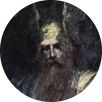
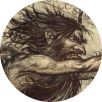
Alberich is the anti-hero of the Ring. When his lustful advances are rejected by the Rhine-daughters, the dwarf curses love and steals their gold, which he uses to forge the much sought after magical ring.

Brünnhilde the Valkyrie is the daughter of Wotan and later the lover of Siegfried. In the final opera in the cycle, Götterdämmerung, she sings as Valhalla burns down and the era of the gods comes to an end.
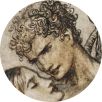
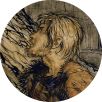
Siegmund, another of Wotan's children, was separated from his twin sister Sieglinde as a child. Meeting as adults they fall in love. The lyrical presentation of their incest caused a scandal among contemporary critics.
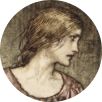
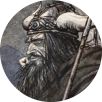
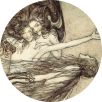
The three beautiful Rhine-daughters open the cycle singing in praise of the gold of the Rhine they protect. They lament when Alberich steals it and forges the ring. Only at the end of the cycle do they get it back.

Sameer Rahim
